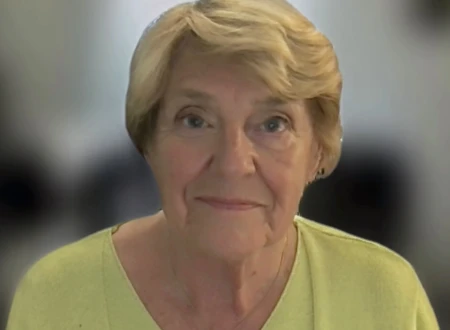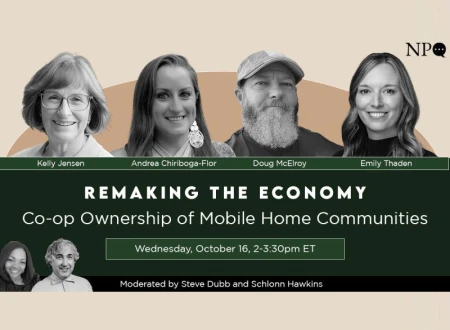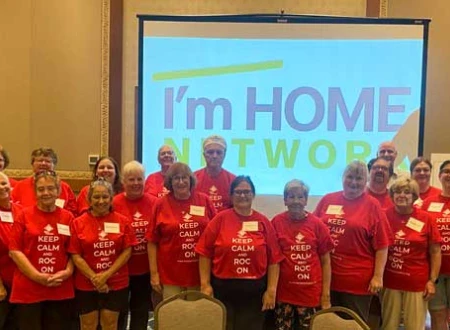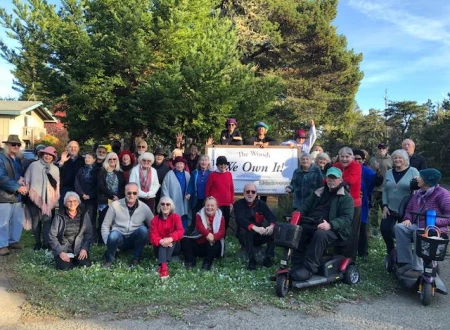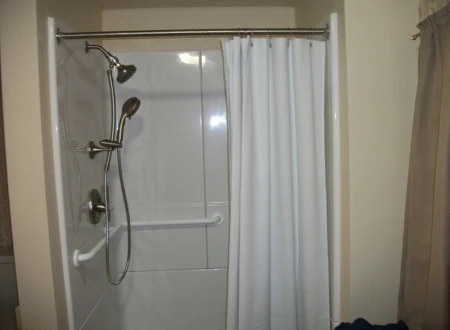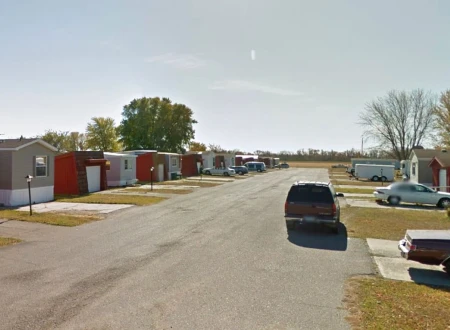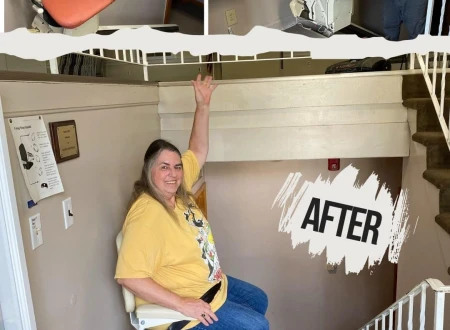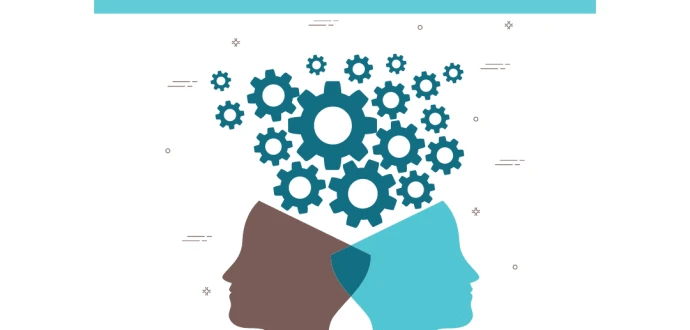
Better Together Call focuses on personal stories, practical tips and community support to navigate winter, enhance well-being and challenge stigma
For Kelly Jensen, working a 5 a.m. shift at her local YMCA is worth the early wakeup call because of the generous mental health boost she receives when connecting with other people.
“If I’m here by myself, I can lay around all day and do absolutely nothing,” said Jensen, Board President at Paradise Village Cooperative in Johnstown, Colo., and ROC Association Director for the Mountain West Region. “But if I’m with people, it gives me the motivation to do everything else I need to do that day. And I have made so many new friends, I have seen people I hadn’t seen for years, and we are all making contact again.”
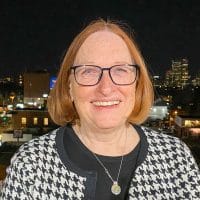
Jensen joined a dozen other ROC Members from across the country to discuss mental health during January’s Better Together Call, a virtual monthly meetup held for all ROC Members by the ROC Association. January’s meeting tackled an important and timely topic that many people across the country are experiencing: In 2021, 22.8 percent of U.S. adults reported experiencing mental illness, according to the National Alliance on Mental Illness, or NAMI an Arlington, Va.-based mental health organization.
Mental health issues tend to increase in the winter months when the days are shorter and the weather colder, which creates more isolation.

“I suffer from mental illness,” said Marjory Gilsrud, Board President at Madelia Mobile Village Cooperative in Madelia, Minn., and ROC Association Director for the East, Midwest and South Region. “It’s much more accepted today than it was 20 years ago, but there is a stigma attached to it.”
The Better Together group worked to reduce that stigma by sharing their stories, tools and tips for improving their own mental health during the winter. Often called Seasonal Affective Disorder or SAD, it increases as the temperatures decrease and the sun sets before many even make it home from work.
Some Members have therapists and psychiatrists to manage their depression and opened up to one another about taking doctor-prescribed medications. They spoke about SSRIs or Selective Serotonin Reuptake Inhibitors because they treat depression by boosting serotonin. Serotonin, a chemical that carries messages between nerve cells in the brain and throughout the body, is often called the body’s natural mood booster, or brain regulator because it makes you feel more focused, stable, happier and calmer, according to NAMI.
Better Together Calls are the first Wednesday of the month. Click to learn more. You don’t want to miss out!
Days Hours Minutes Seconds
Studies suggest there is an association between low vitamin D levels in the blood and various mood disorders, including depression and SAD, and increasing those levels could help, according to articles published by NAMI.
“As soon as we hit September, I amp up my vitamin D, and as soon as the time changes, I boost it up even more,” said Kathleen Costello, Board Vice President for Animas View MHP Cooperative in Durango, Colo. “And I will stay on that pretty much until the end of June and decrease it then, but I find vitamin D is super helpful for dealing with the seasonal stuff.”
Susan Holli Neidlinger, Board Vice President for The Woods Cooperative Association in Little River, Calif., said exercise with a friend, listening to inspiring books and doing puzzles helps her stabilize her mood.
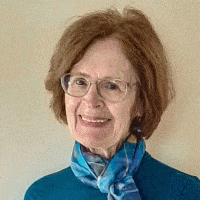
“Getting outdoors and being able to walk outside with a friend is like a double whammy,” Neidlinger said. “It is really important to have contact with other people and people of all ages. One of the things that I also found helpful is listening to “Dare to Lead,” or other books. And at the same time doing a jigsaw puzzle and putting the pieces of life together, that helps me stay focused. I need the intellect to be reminded and also the heart. And to somehow try to get the two together.”
The participants also discussed how to be supportive of neighbors suffering from mental health disorders and why it’s important for Board Members to learn to manage the stress that comes from an often demanding, time consuming and sometimes mentally draining volunteer position.
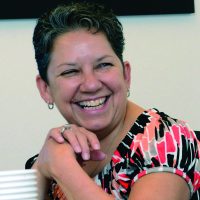
“We need to look at self-care for our Board Members,” said Natividad Seefeld, Board President at Park Plaza Cooperative in Fridley, Minn. “How do we take care of us as Board Members and help our community. There are a lot of big things we deal with every day, not just within our family unit.”
Deb Winiewicz, past president at Halifax Estates in Halifax, Mass., and ROC Association Director for the New England region, said Halifax’s Council on Aging is active in her ROC and will offer services and visit people who are in need.

“I think it’s hard for Boards to know how to help someone in their community if they don’t know where to find resources,” she said.
ROCKET, ROC USA’s Online Community for Knowledge Education, and Training offers all ROC Boards and Members free courses on mental health, including “Managing Stress,” “Switching off from Work,” “Importance of Sleep” and “Positive Thinking” among others.
988 is a helpful national three-digit dialing code. Previously called the National Suicide Prevention Lifeline, it connects people all over the country to trained crisis counselors and is available 24/7. Learn more here.
Mental health professionals offer the following tips:
Get the right amount of sleep: Typically, seven to eight hours per night can help you feel less stressed and more energetic and resilient.
Spend time with family and friends. Human beings are wired for connection.
Practice mindfulness. Be present in your life and breathe. Apps like Insight Timer, Headspace and Ten Percent Happier are also helpful tools.
Move your body. When you get your heart pumping, your brain releases a range of neurochemicals that promote feelings of well-being.
Even if it’s cold, bundle up and get some sun. It will help combat the seasonal affective disorder and boost vitamin D in your body.


